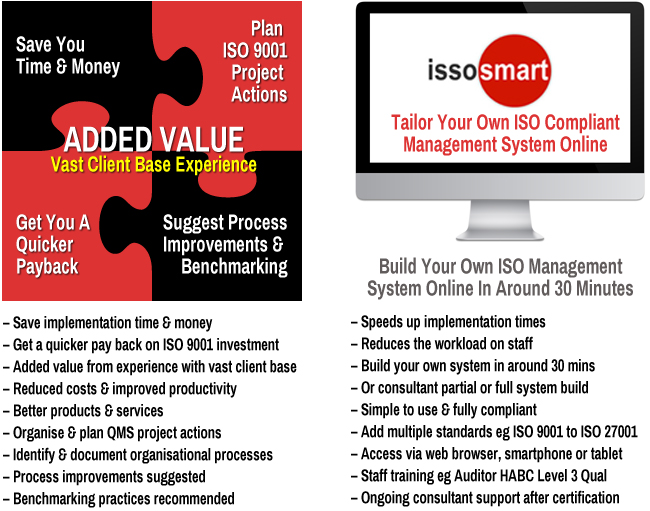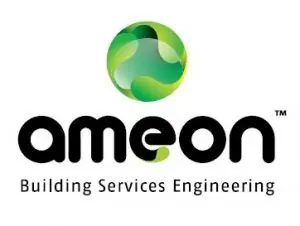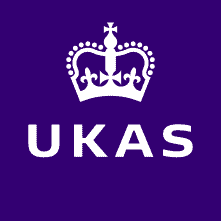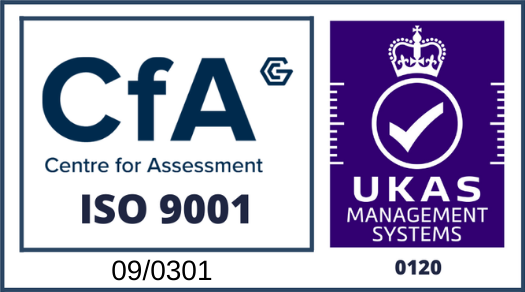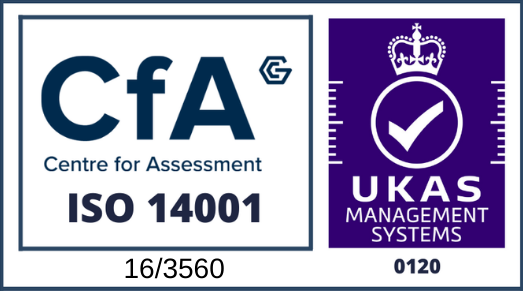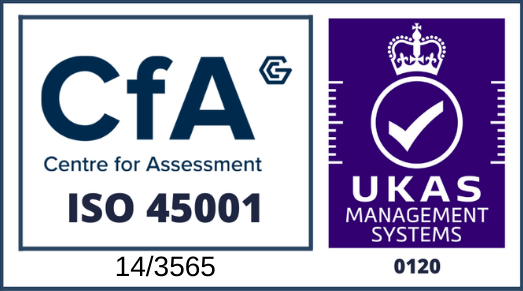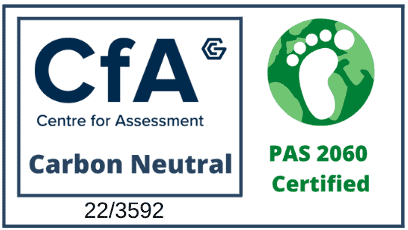Find Out More: How Much Does An ISO 27001 Information Security Management System Cost In The UK?
The Cost of ISO 27001 Certification UK
Typically, the cost for ISO 27001 certification ranges from £9,900 to £14,000.
The ISO 27001 Information Security Management System costs are for consultancy, UKAS accreditation and include UK certification organisation auditing fees. Initial fees can be cheaper for professional certification that is not accredited. However, in the long term can be much more costly. You can find out more about this here.
ISO/IEC 27001 is a very detailed and complicated standard with probably more requirements than ISO 9001, 14001 and 45001 combined!
ISO 27001 Certification Cost In The UK – 2024
The cost of ISO 27001 certification in 2024 including accreditation and implementation can range between £9,900 and £14,000.
Beware Of Certification Organisations That Are Not Accredited!
It is important to understand that some ISO 27001 certificates are different from others. You see, a readily available or supposedly economical certificate might not be suitable for your customers because the certification body that issues them are not independently assessed by the IAF.
A highly respected UK accreditation body like UKAS is accredited independently as a certification organisation by the International Accreditation Forum (IAF).

The IAF’s role is to ensure accreditation is an independent assessment of the conformity of assessment organisations to make sure they are operating with competence and impartiality in line with recognised International Organization for Standardization standards. See more.
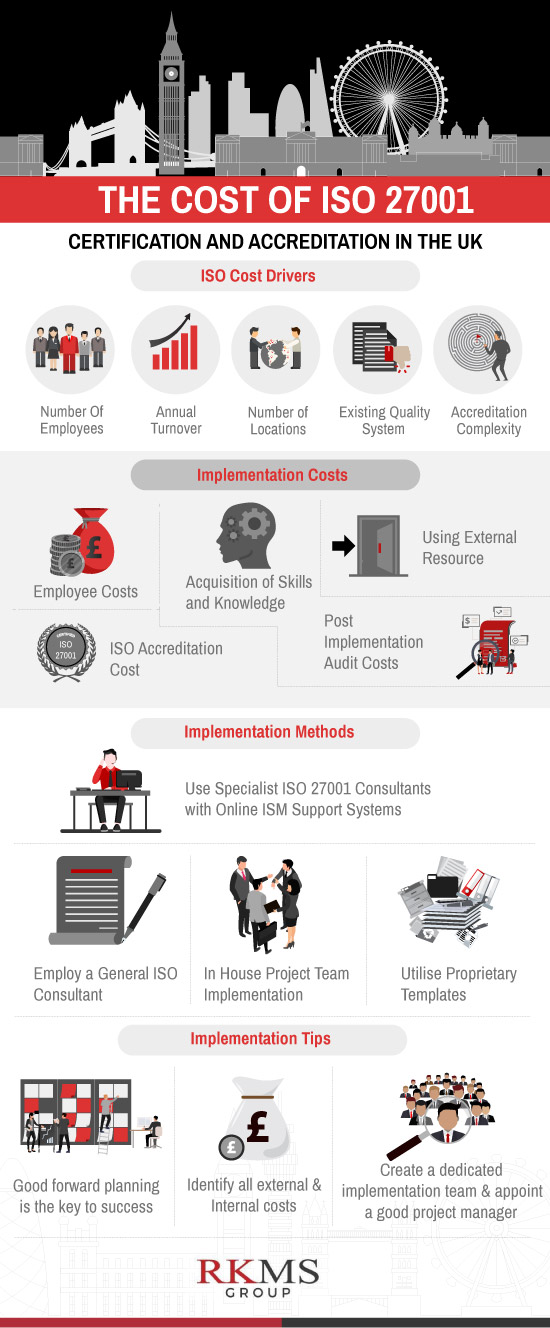
How Much Does It Cost To Get ISO 27001 Certified?
ISO 27001 consultancies that provide accreditation recognised professionally by UK certification organisations such as UKAS, are not able to publish a list of prices for the accreditation service they provide.
The reason for this is that cost of ISO 27001 certification can vary as a result of these factors:
- annual sales revenues
- business process
- IT infrastructure
- the number of operational employees
- how may locations an organisation has
- how complex are the required audits
- current documentation levels

UK ISO 27001 Consultants – Saving Time & Money Benefits
An ISO 27001 consultancy practice that has a successful track record of achievement are an asset able to add lots benefits and value to a client’s management organisation. They possess knowledge, skills, experience and resources relative to IT risk management built over a long time from working with many different enterprises, industries and markets.
UK ISO 27001 Consultants, Improve Company Operations By Adding Value To Them
Implementing ISO 27001 is not just concerned with creating an information security management system to obtain ISO certification.
It’s also concerned with improving an organisation’s risk management, methods, procedures, systems and employees. In good measure, this will enable cost effective information security compliance to be delivered to its stakeholders.
Expert Consultancy Saves You Money & Time With Your ISO 27001 Certification
ISO 27001 consultancies deliver unrivalled capability to delivery and planning of ISO standard projects and optimise your ISO 27001 cost UK.
An expert ISO 27001 consultancy minimises the burden of financing new information security management systems.
In addition, utilisation of cloud based management and support systems minimise company employees’ auditing workload. Project times are reduced and they maintain support to the client from the consultancy long after the system has been created and certified.
Project Delivery Time Is Minimised By Efficient Consultancy Practices
Your organisation will derive benefit from its new information security management policy and system very quickly.
Utilising external consultants means that projects are kept on track to make sure that an organisation isn’t wasting resources and time for instance on, producing audit documentation that is not required.
Consultants provide a “catalyst” for effective implementation and planning by obtaining senior management investment in appropriate project funding.
Implementation In House – The Hidden ISO 27001 Cost UK
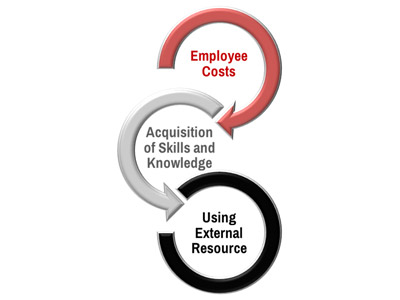
Utilising a “do-it-yourself”, unsupported approach to implementation and auditing will involve in depth learning of all aspects of the ISO 27001 information security management standard. This entails the employment, establishment and allocation of the responsibilities and roles of all employees that will be involved in the implementation and ongoing management of the system.
Proficient knowledge of the ISO 27001 information security management system (ISM) standard and certification organisation accreditation bodies must be acquired by staff. In turn, employees must be able to convert that knowledge into the creation and establishment of information security processes suitable for their organisation’s information technology and computing platform and put them into practice.
This issue can be overlooked by an organisation. Hidden costs often go unmeasured and arise from an organisation’s internal project management team.
Acquisition Of Computer Security Knowledge & Skills
Additional comprehensive training must also be delivered to ensure effective and efficient implementation of this standard throughout an organisation’s processes and systems.
The drawback her is the significant additional cost and time needed to establish security controls, software maintenance, processes and their requisite documentation.
Employees & Management – ISO 27001 Accreditation Cost
It may not be appreciated by organisations at first but employees in an organisation will probably spend a lot amount of their time implementing the information security management system instead of their normal duties. This often results in hidden ISO 27001 “opportunity costs” UK businesses can avoid.
These costs can be really expensive if highly paid specialist engineers and line managers are involved. Their time may be diverted with the creation of methods, systems and documents for ISO 27001 certification instead of concentrating on their day to day operations tasks.
Find out about ISO 9001 costs here.
ISO 27001 Consultancy Done For You
The RKMS “done for you” service will give you a faster pay back on your information security management investment.
An ISO 27001 information security management system helps safeguard against the threat to your organisation and its reputation from cyber-crime, computer threats and data breaches. It also demonstrates that your organisation is very serious about information security and will avoid fines for regulatory non-compliance.
Therefore, using a specialist external ISO 27001 consultancy makes a lot of sense. Organisations will save money and time by obtaining a quicker payback on their information security and ISO accreditation investment.
John Keen, CEO & Managing Director
Build An ISO 27001 Management System with issosmart™
issosmart™ is a cloud ISO 27001 compliance management system with prices starting from a modest £100 plus VAT per month.
issosmart™ provides the evidence required for ISO 27001 certification including a user guide, manual, procedures plus registers & forms. It also provides these additional benefits:
- Risk & threat management
- Increased protection & control
- Legal compliance
- Business insights
Three options are available for clients to choose from:
- Install Yourself – client populates all information themselves.
- Expedited Install – RKMS guidance provided gap analysis, action planning, internal audits & management review.
- Entire Install – comprehensive support from RKMS through the whole process with guaranteed certification.

CEO – John A Keen MSc CQP MCQI MIBC
MSc – Master of Science Total Quality Management
CQP – Chartered Quality Professional (M023859)
MCQI – Member of the Chartered Quality Institute (M023859)
MIBC – Member of the Institute of Business Consulting (4133702)
IRCA Registered Lead Auditor QMS, EMS & OHS (01183825)
Share
Do you want us to take care of your fire compliance? H&S compliance? ISO certification? training? human resources?
At RKMS we are determined to make a business run as efficiently as possible. Will that next business be yours?
Related Resources
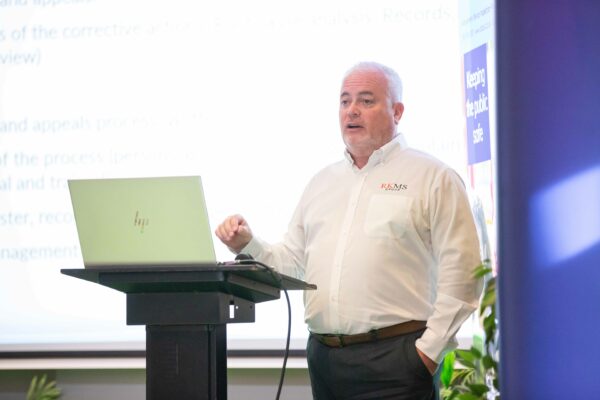
RKMS Group and ADIPS Unveil Groundbreaking Partnership for Amusement Industry Safety
ADIPS and RKMS announce partnership for IB audits ADIPS and RKMS today announced a partnership to deliver a comprehensive auditing programme for inspection bodies in
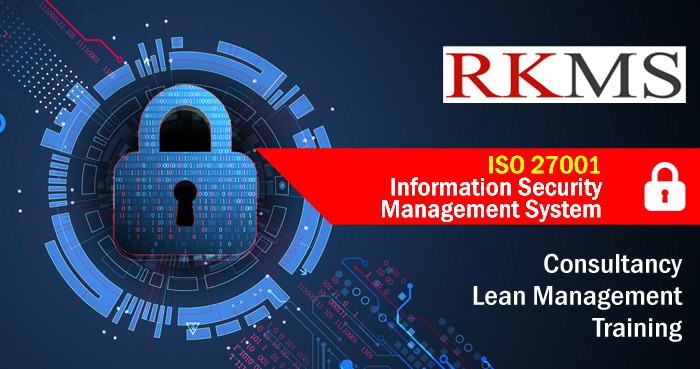
The Cost Of ISO 27001 Certification
Find Out More: How Much Does An ISO 27001 Information Security Management System Cost In The UK? The Cost of ISO 27001 Certification UK Typically,
Do you want us to take care of your fire compliance? H&S compliance? ISO certification? training? human resources?
At RKMS we are determined to make a business run as efficiently as possible. Will that next business be yours?
Administrator
Do you want us to take care of your fire compliance? H&S compliance? ISO certification? training? human resources?
At RKMS we are determined to make a business run as efficiently as possible. Will that next business be yours?
